I often wonder why dystopian fiction is so compelling to so many of us, especially these days, when our real world looks more and more like a dystopia itself. What good is escape if what you’re escaping to is just a fun-house mirror? All of my favorite dystopian novels have this quality —that eerie too-close-to-home feeling that allows you to feel just unsettled enough to keep reading.
But why do we like to be unsettled? Life is pretty hard already. Maybe it’s because good fiction, with its low barrier to entry and captivating prose, allows us to understand the world around us without staring directly into the void; like looking sideways at the stars to fully see their light. Maybe fully acknowledging the real dystopia of capitalism and war and inequality is just too painful for our weak human brains, but through metaphor and lyricism, we can start to understand the forces at play off the page.
How else to explain the dark pleasure of not just reading dystopian literature but writing it? My own dystopian debut, Yours for the Taking, came out in December and is about a near-future New York City ravaged by climate change and a group of queer people who come together under the worst of circumstances. I didn’t write it to be realistic — if anything, I tried to make it a little ridiculous in order to inject some levity into its darker themes — so you can imagine my surprise when reader feedback started coming in about how close to real life it felt. I also knew that meant I had gotten something right.
Friends and readers keep asking me how I took care of myself while writing something so disturbing. I don’t really have a good answer for this. The writing was self-care. I worked on this book between 2019 and 2023, years not exactly known for… incredible progress. In many ways, letting myself slip into another, imaginary world — albeit a worse one — was how I made sense of it all. And when I got stuck, I turned to other dystopian books, looking at how both classic and contemporary works dealt with darker themes. Here are the ten that impacted me the most. While vastly different in subject matter, they all have echoes of our own world, as though the seeds for the future societies they describe have already been planted.
Black Wave, by Michelle Tea
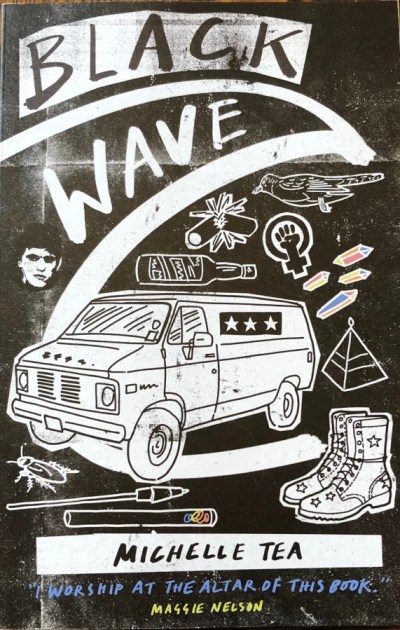
This novel was the first time it occurred to me that you can take familiar-feeling queer drama and set it at the end of the world, instantly upping the stakes. Imagine! I’ll be a fan of Michelle Tea forever and this was just one of many books that made me feel in awe of her. In Black Wave, the world is ending in 1999, and the fictional character Michelle is living in a bookstore in San Francisco while trying to stay sober and also date Matt Dillon. It’s very funny, surreal, and incredibly original.
Never Let Me Go, by Kazuo Ishiguro
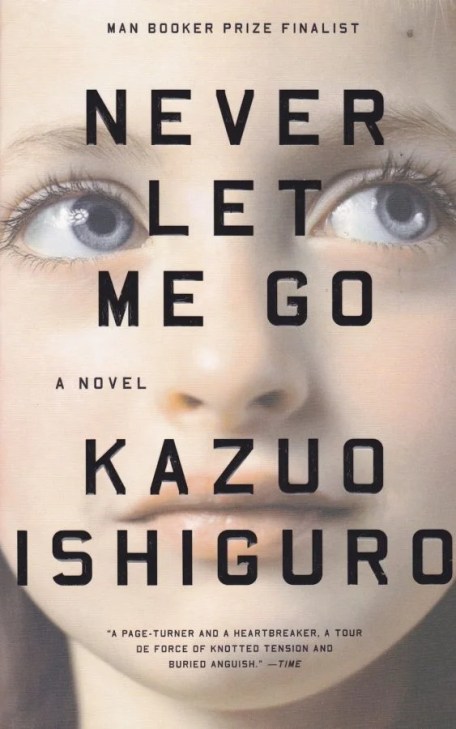
If you haven’t read this or seen the movie, go into it blind. Unwrapping the mystery of what the fuck is going on in this book is half the fun of reading it; and by fun I mean the first time I read it, once it hit me what was actually happening, I felt like I was falling straight into a black hole of heartbreak! I won’t spoil it with a plot summary. I’ve returned to it many times to figure out how Ishiguro managed to pull off such a feat. Goes without saying this one is a masterpiece.
Station Eleven, by Emily St. John Mandel
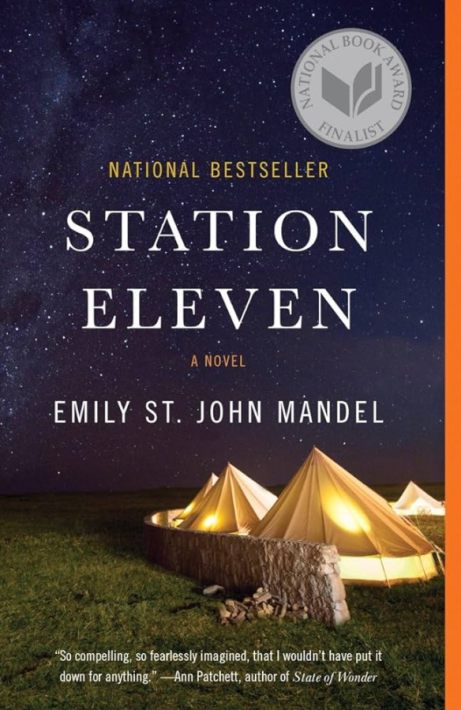
Multiple POVs span across decades in the aftermath of a global flu pandemic that wipes out most of the world’s population, though the heart of the book is a girl who is part of a traveling Shakespearean theater troupe and the dangers/joys they encounter on the road. Read it even if you think you want to avoid pandemic literature. Like most great sci fi it’s about something much larger; in this case, the way we’re all connected to each other by love and art and love of art. Also, as Riese and I discussed in our recent interview, the TV show based on the book is the best show ever made, full stop.
The Age of Miracles, by Karen Thompson Walker
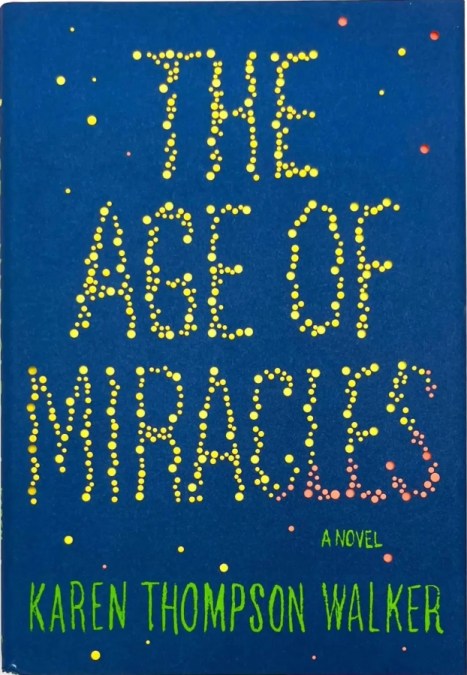
A middle schooler navigates a drastically changing world when the earth suddenly starts spinning slower, making the days inexplicably longer. The “age” of miracles is both the time she’s living through and her literal age, in which she discovers first love, deals with the realities of her family, and tries to figure out who she is. It’s decidedly not YA despite focusing on young adults. This one’s a real gutpunch, and worth every second.
Parable of the Sower, by Octavia Butler
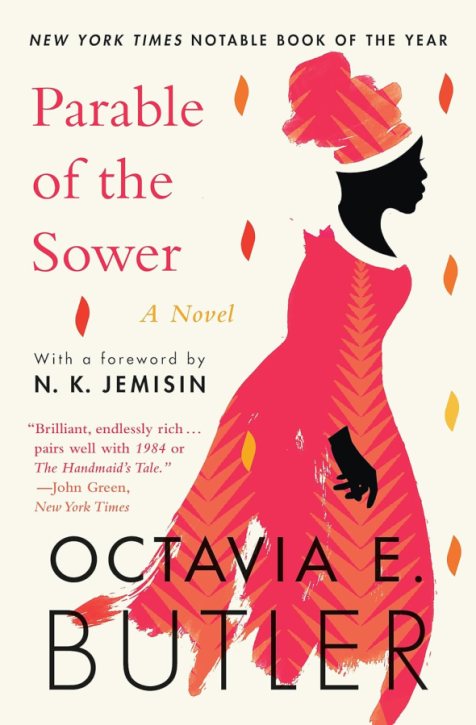
One of the first dystopian novels I ever read, this one follows a young girl who lives in a gated community in a world ravaged by climate change and war and capitalism. When outside forces can’t be held at bay anymore, she leaves, starting a new religion based on her own ideas, amassing more and more followers on the journey to safer grounds. It’s the blueprint for a lot of contemporary literature, and a classic for a reason. By the end of it you might just want to join her, too.
I Keep My Exoskeletons to Myself, by Mac Crane
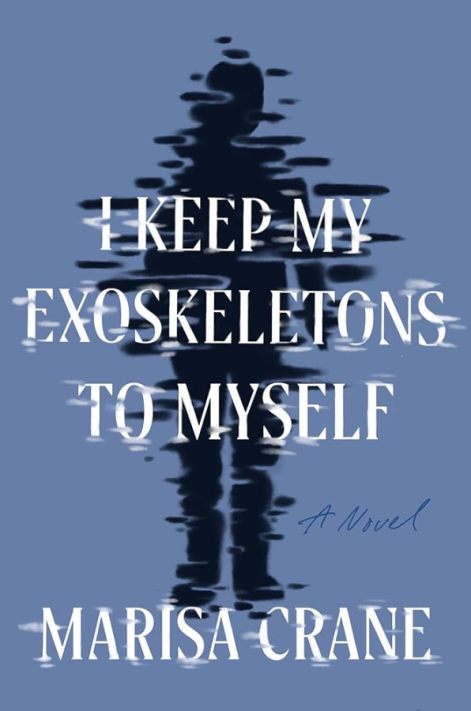
Mac Crane’s debut novel is a master class in lyricism. In the future, in place of incarceration, a crime gets you an extra shadow, dooming you to live with the visible stigma of what you’ve done — though what counts as a crime and who gets to decide that is ethically murky. On the first page, our narrator’s wife dies in childbirth and the baby is given a shadow for her murder, setting the tone for a book filled with grief, love, found family, and an ever-present surveillance state. Told mostly as though the narrator is speaking to her late wife, and interspersed with experiments in form, it’s wildly imaginative and full of messy queer sex. I’ve taken to giving it as a gift.
The City We Became, by NK Jemisin
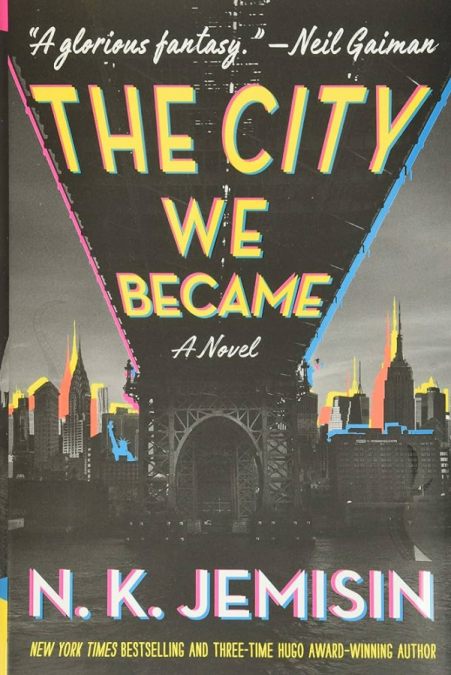
When each borough of New York City is personified and brought to life, and they must find each other in order to defeat the interdimensional forces threatening to turn NYC into something sinister and unlivable. The sign that this evil is coming? Gentrification, mostly. A great example of how a wild story can so accurately reflect our reality, I haven’t stopped thinking about this book since I read it a few years ago.
Children of Time, by Adrien Tchaikovsky
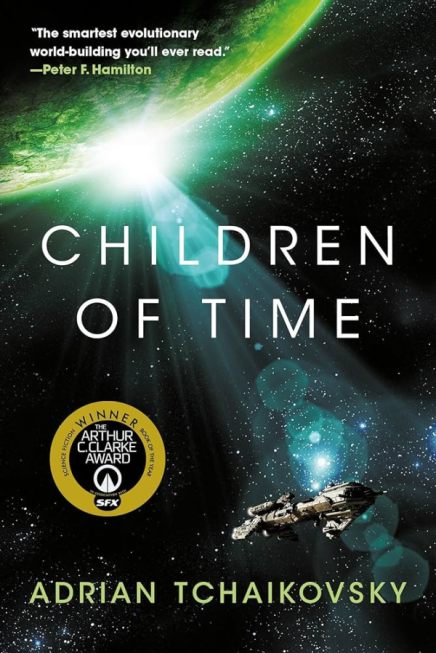
You might want to tell me that this is technically science fiction, but I’m not sure what is more dystopian than an unlivable earth and a scientist trying to inject monkeys on a terraformed planet with a virus to speed up their evolution (so that they can evolve to worship her, naturally) and accidentally creating a super-smart species of spider instead. Sorry! The spider planet is the scariest world I’ve encountered on the page, and therefore I’m including it on this list. The spider chapters alternate with the human ones, and by the first hundred pages of this epic I was sold: spiders do it better. When the humans and the spiders finally collide, well, I won’t give it away, you just have to read it.
Severance, by Ling Ma
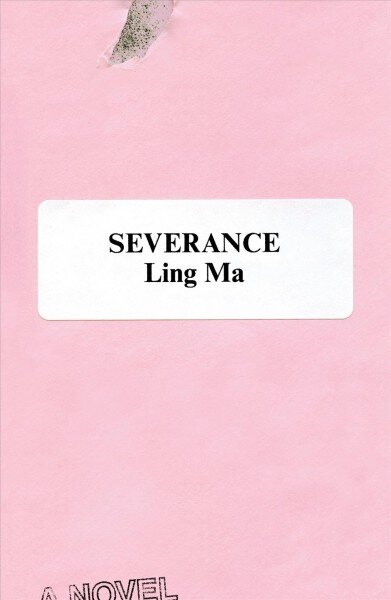
When the world is hit with a pandemic that turns the sick into zombies, one woman’s employer offers severance to anyone who keeps coming to work until the end date, and so she does — until she’s the last woman in New York City, eventually joining a band of other survivors and setting out into the terrible remains of the plague-stricken world. It’s a creepy meditation on exploitation and capitalism, and was extra eerie once the real pandemic happened and some of us (ahem) just kept going to our little jobs and typing on our little computers while the world was on fire.
How High We Go In The Dark, by Sequoia Nagamatsu
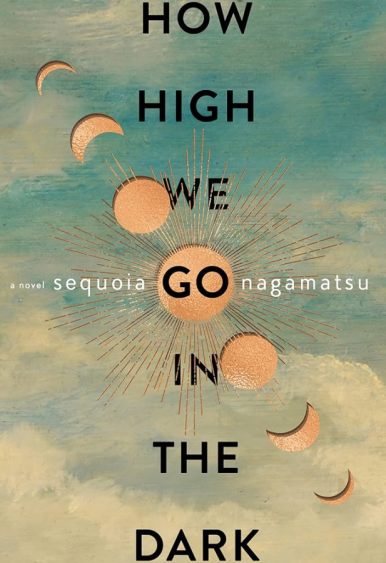
Every time I recommend this book to people I also give them a heads up that it might ruin their life (but like, in a good way). It’s the story of an Earth forever changed by a virus unleashed by the melting permafrost, but becomes something much bigger than that. Each chapter feels like a separate story, taking us further and further into a pandemic-ravaged world, until you start to understand how it’s all connected — and that the very genre of the book might not be what you think it is. Ultimately it’s not just about how the characters and storylines are connected but how we all are, to each other and to things bigger than us. I really can’t count the number of times I cried reading it, and it cracked something open in my own creative process in terms of what you’re allowed to do with time and the scale of your story.

I completely agree – and I think seeing our own feelings and experiences echoed in fiction makes us feel less alone in a world that is increasingly atomized and alienating. I’ve read a few of these recently myself (Parable of the Sower, The City We Became, Severance) and really enjoyed them. Can’t wait to check out the rest!
Thank you for this list! I’ve read several already and agree wholeheartedly with your recommendations. Octavia Butler is a favorite. I think it’s a good idea to buckle in for the duology of The City We Became…and then charge right into NK Jemisin’s Broken Earth Trilogy (speculative fiction)
Not queer, but The Dog Stars is another favorite.